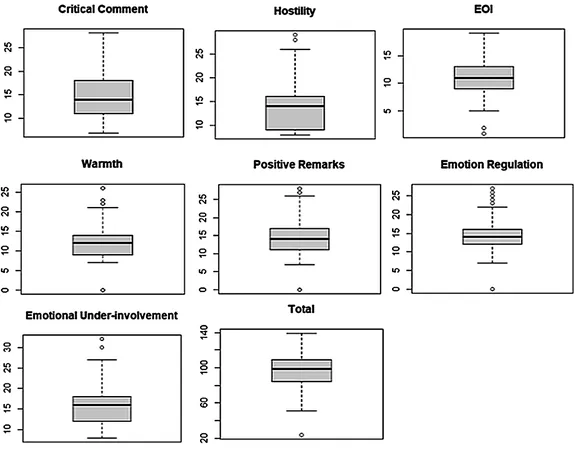
Unveiling Caregiver Emotions: A Groundbreaking Study on Caregivers of Individuals with Schizophrenia in Southern Thailand
2025-01-13
Author: Daniel
Understanding the Emotional Strain of Caregiving
Schizophrenia, a complex and multifaceted mental disorder, not only impacts those who suffer from it but also significantly affects their caregivers. A new study conducted in Southern Thailand sheds light on the levels of expressed emotions (EE) among caregivers of individuals with schizophrenia, highlighting the interplay between caregiver burdens and emotional responses.
Research Insights
Between May and July 2024, a comprehensive cross-sectional survey was carried out among 200 caregivers across several hospitals in Southern Thailand. Utilizing various assessment tools—including the Thai Expressed Emotion Scale (TEES), the General Health Questionnaire (GHQ-12), and the Zarit Burden Interview (ZBI)—researchers delved deep into the emotional landscape of caregivers.
The findings are striking: more than half of the caregivers (46.0%) reported elevated levels of EE, marked by heightened criticism and emotional over-involvement, while a significant 29.0% experienced severe emotional burden. The median EE score was 99.0, indicating a substantial emotional response that can have profound implications for both caregivers and their loved ones.
Key Findings on Caregiver Well-being
The research unearthed critical themes: - Female caregivers represented the majority at 70.5%, with a median caregiving period of 108 months. - Notably, 51.0% of caregivers reported no mental health issues, but those experiencing severe burden scored significantly higher on the EE metrics (110.5) compared to others (94.0). - Factors such as the caregiver’s occupation, mental health status, and the duration of the patient’s illness were found to be associated with higher levels of EE.
The Emotional Dynamics at Play
Understanding EE is vital, as it encapsulates the caregiver's attitudes, feelings, and behaviors towards the patient. With components including warmth, criticism, hostility, and emotional involvement, caregivers exhibiting high EE are often less supportive and more critical, which paradoxically may exacerbate the patient's symptoms and lead to relapses.
The study echoes findings from similar research, indicating that emotional responses from caregivers, characterized by high EE, can predict relapse rates in schizophrenia patients. Higher warmth, conversely, was noted to play a protective role in recovery.
Cultural Context: A Unique Lens
Southern Thailand's diverse cultural milieu, shaped by a significant Muslim population, presents interesting dynamics in caregiving. This study highlights the importance of cultural considerations in emotional expressions. Unlike previous studies from Thailand's central region, the varied religious and cultural contexts could influence caregivers' dynamics significantly.
Looking Ahead: Recommendations for Support
These findings underline the urgent need for targeted support for caregivers. By recognizing factors that contribute to emotional stress, healthcare providers can develop interventions aimed not only at alleviating caregiver burden but also fostering a more supportive environment for both caregivers and individuals with schizophrenia.
Addressing caregivers' mental health as a priority can lead to healthier emotional interactions, thereby improving patient outcomes. It piques interest in potential future research focusing on longitudinal studies that examine these dynamics over a longer timeframe, incorporating qualitative assessments to enrich understanding.
In summary, this pioneering study brings to light crucial aspects of expressed emotion among caregivers in Southern Thailand, emphasizing the complexity of emotional experiences and the importance of sociocultural contexts in shaping caregiver responses. It advocates for a future where caregiver support is prioritized, ultimately enhancing the quality of life for both caregivers and those they care for.
 Brasil (PT)
Brasil (PT)
 Canada (EN)
Canada (EN)
 Chile (ES)
Chile (ES)
 Česko (CS)
Česko (CS)
 대한민국 (KO)
대한민국 (KO)
 España (ES)
España (ES)
 France (FR)
France (FR)
 Hong Kong (EN)
Hong Kong (EN)
 Italia (IT)
Italia (IT)
 日本 (JA)
日本 (JA)
 Magyarország (HU)
Magyarország (HU)
 Norge (NO)
Norge (NO)
 Polska (PL)
Polska (PL)
 Schweiz (DE)
Schweiz (DE)
 Singapore (EN)
Singapore (EN)
 Sverige (SV)
Sverige (SV)
 Suomi (FI)
Suomi (FI)
 Türkiye (TR)
Türkiye (TR)
 الإمارات العربية المتحدة (AR)
الإمارات العربية المتحدة (AR)